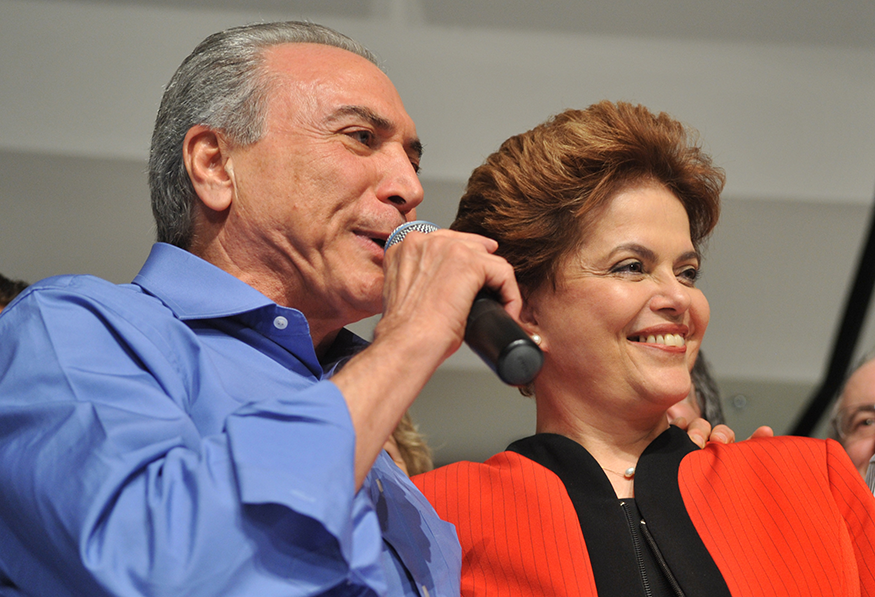.jpg)
Said this, we do need to talk about the line to the Executive branch – the actual representatives in the government have all legal issues holding their backs, as they are accused of active corruption, money laundering, misuse of public funds, and several other crimes against the Treasury and in favor of self-benefits. The first one in the line to replace Rousseff is the Vice-President, Mr. Michel Temer – he is being accused of heading the financial transactions which led to the "pedaling taxes", and crimes of fiscal responsibility, since he hasn't help avoiding the economic crisis that overflows the country nowadays. Since these accusations have been spread by the press, an impeachment process was open against Temer in April 6th of the present year, but it was archived by Mr. Renan Calheiros, current President of the Federal Senate, the next day. However, people are unsatisfied with Temer, trying to refrain the idea of having him as the Interim President, so a new process is being studied meanwhile Rousseff is facing hers. If she were impeached, Temer would take the lead by the rest of her presidential term. Nevertheless, if Temer were pulled out of the government by the impeachment process, the next one in the line is the President of the Chamber of Deputies, Mr. Eduardo Cunha.

Eduardo Cunha has been the President of the Chamber of Deputies since February 2015 and, since then, has been target of many critics and of many minority groups due to his hate speech against the LGBT community and Afro-Brazilian religions. Cunha is a notorious evangelical pastor, and was elected with more than 200,000 votes for his third term as Federal Deputy. However, since August 2015, his name was involved in the investigation about the corruption scandal in Petrobras, the biggest oil company in Brazil, named as "Operação Lava-Jato" (Operation Car Wash). The company has been involved in an enormous corruption globalization, which led Petrobras to lose around $1,748 billion in bribery and racketeering. Cunha was accused of being the bridge between his political party (PMDB, standing for Party of Brazilian Democratic Movement) and the International Board of the oil company, receiving around $1,400 million in bribes. Besides, he's been targeted as an extremist religious and as an intolerant of social minorities, such as homosexuals and black people. If he assumes the government, the Federal Constitution of 1988 says he must call the Brazilians for a new election in the period of 90 days – which means the country would begin again the process of choosing a new President right after the abrupt exit of the last one.

In other words: Brazil is filled with corrupt and dishonest politicians in each and every phase of the public sphere, so either Rousseff being expelled or not from the government, people are still struggling with bad character politicians and the budget gap caused by successive and significant corruption scandals involving public funds. Neither Rousseff nor Temer can do any good to Brazil if they continue ruling the country, since they have no more the political support in the National Congress or the wide acceptance of the population. Cunha would be just a temporary chief, but we must be warned about him and his extremism – if he takes enough time, he might undo important changes about the minorities he clearly disrespect in his speeches. If we have the exit of both President and Vice President, this means the Brazilian population had failed in choosing their biggest representative, since Rousseff, when elected, was already with Temer by her side, so they were elected together. The most urgent change to be done in the Brazilian politics is the total eradication of any parliamentarian involved with any corruption accusation from the Legislative Houses but, if we do that now, we might be risking ascend to the maximum power of the country a real circus clown or a retired soccer player – so, any plans of political reform must wait this whole confusion settles down to take place.

Nenhum comentário:
Postar um comentário